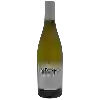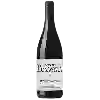
Winery Les Terres de MallyceLes Rêves de Rasiguères
In the mouth this red wine is a powerful with a nice balance between acidity and tannins.
This wine generally goes well with beef, veal or pasta.
Taste structure of the Les Rêves de Rasiguères from the Winery Les Terres de Mallyce
Light | Bold | |
Smooth | Tannic | |
Dry | Sweet | |
Soft | Acidic |
In the mouth the Les Rêves de Rasiguères of Winery Les Terres de Mallyce in the region of Languedoc-Roussillon is a powerful with a nice balance between acidity and tannins.
Food and wine pairings with Les Rêves de Rasiguères
Pairings that work perfectly with Les Rêves de Rasiguères
Original food and wine pairings with Les Rêves de Rasiguères
The Les Rêves de Rasiguères of Winery Les Terres de Mallyce matches generally quite well with dishes of beef, pasta or veal such as recipes of beef stew express, pasta with scamorza and pancetta cheese or veal blanquette à l'ancienne.
Details and technical informations about Winery Les Terres de Mallyce's Les Rêves de Rasiguères.
Discover the grape variety: Goron de Bovernier
Its origin is most certainly Valdôtaine (Italy), still cultivated in the Entremont Valley in the Swiss Valais and totally unknown in other countries. It is the result of a natural cross between a still unknown or even extinct variety and the Cornalin du Valais or rouge du pays. It is the grandson of the humagne rouge or petit rouge and would also have genetic links with the rèze and the chasselas. The Goron de Bovernier is registered in the Official Catalogue of wine grape varieties list B.
Informations about the Winery Les Terres de Mallyce
The Winery Les Terres de Mallyce is one of of the world's greatest estates. It offers 15 wines for sale in the of Côtes du Roussillon Villages to come and discover on site or to buy online.
The wine region of Côtes du Roussillon Villages
The wine region of Côtes du Roussillon Villages is located in the region of Côtes du Roussillon of Languedoc-Roussillon of France. Wineries and vineyards like the Domaine du Clos des Fées or the Domaine de Rombeau produce mainly wines red, white and pink. The most planted grape varieties in the region of Côtes du Roussillon Villages are Mourvèdre, Lledoner pelut and Pinot noir, they are then used in wines in blends or as a single variety. On the nose of Côtes du Roussillon Villages often reveals types of flavors of cherry, anise or black plum and sometimes also flavors of citrus fruit, tree fruit or fennel.
The wine region of Languedoc-Roussillon
Languedoc (formerly Coteaux du Languedoc) is a key appellation used in the Languedoc-Roussillon wine region of southern France. It covers Dry table wines of all three colors (red, white and rosé) from the entire region, but leaves Sweet and Sparkling wines to other more specialized appellations. About 75% of all Languedoc wines are red, with the remaining 25% split roughly down the middle between whites and rosés. The appellation covers most of the Languedoc region and almost a third of all the vineyards in France.
The word of the wine: Heavy
Said of a thick, rustic wine that lacks finesse.














